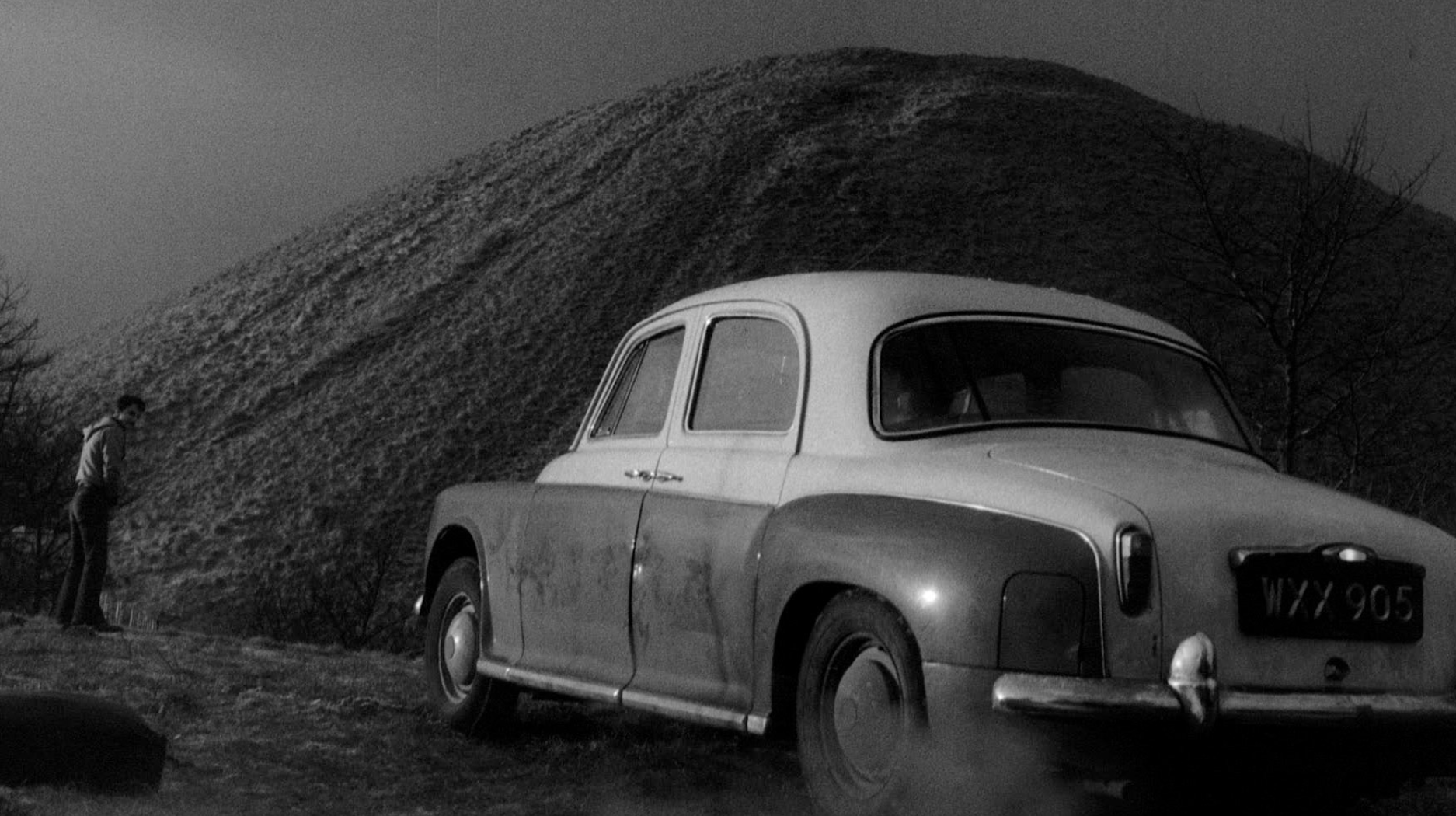Radio-Activity: A Conversation with Christopher Petit
Radio On, Christopher Petit’s 1979 debut feature, is a singular and melancholy road movie that feels plucked out of time. Echoes of the period in which it was made—that bleak and politically tumultuous stretch of British history known as the Winter of Discontent—can be felt throughout the film, yet Petit set out to offer an antidote to the social-realist works of his contemporaries. His was an experiment in creating the kind of observational film he felt was missing from British cinema.
Driven by a soundtrack composed of Petit’s favorite rock-and-roll, new wave, and post-punk artists—from David Bowie (whose German version of “Heroes” opens the film) and Kraftwerk to Devo and Robert Fripp—Radio On follows an enigmatic young disc jockey (David Beames) as he journeys from London to Bristol to investigate the recent suicide of his brother. Along the way, he goes on several detours in the form of encounters with eccentric strangers, including an Eddie Cochran–obsessed gas station attendant (a boyish Sting), a mentally disturbed soldier, and a pair of women tourists from Germany. Expanses of the desolate countryside, sparse hotel rooms, and the concrete contours of urban motorways are captured in striking monochrome by the German cinematographer Martin Schäfer, a frequent collaborator of Wenders and camera assistant to Robby Müller on such films as Kings of the Road, Alice in the Cities, and The American Friend. The influence of those New German Cinema classics can be found in the film’s languorous visual style, interest in psychogeography, and rejection of classical narrative, funneled through Petit’s own distinct vision of his home country.
Four decades after Radio On’s U.S. premiere, a new restoration, which debuted at the 2021 New York Film Festival, is now streaming exclusively on the Criterion Channel. To celebrate the occasion, I spoke to Petit about the making of his cult classic and the role that cinema has played throughout his life. hristopher Petit’s 1979 debut feature, is a singular and melancholy road movie that feels plucked out of time. Echoes of the period in which it was made—that bleak and politically tumultuous stretch of British history known as the Winter of Discontent—can be felt throughout the film, yet Petit set out to offer an antidote to the social-realist works of his contemporaries. His was an experiment in creating the kind of observational film he felt was missing from British cinema.
Driven by a soundtrack composed of Petit’s favorite rock-and-roll, new wave, and post-punk artists—from David Bowie (whose German version of “Heroes” opens the film) and Kraftwerk to Devo and Robert Fripp—Radio On follows an enigmatic young disc jockey (David Beames) as he journeys from London to Bristol to investigate the recent suicide of his brother. Along the way, he goes on several detours in the form of encounters with eccentric strangers, including an Eddie Cochran–obsessed gas station attendant (a boyish Sting), a mentally disturbed soldier, and a pair of women tourists from Germany. Expanses of the desolate countryside, sparse hotel rooms, and the concrete contours of urban motorways are captured in striking monochrome by the German cinematographer Martin Schäfer, a frequent collaborator of Wenders and camera assistant to Robby Müller on such films as Kings of the Road, Alice in the Cities, and The American Friend. The influence of those New German Cinema classics can be found in the film’s languorous visual style, interest in psychogeography, and rejection of classical narrative, funneled through Petit’s own distinct vision of his home country.
Four decades after Radio On’s U.S. premiere, a new restoration, which debuted at the 2021 New York Film Festival, is now streaming exclusively on the Criterion Channel. To celebrate the occasion, I spoke to Petit about the making of his cult classic and the role that cinema has played throughout his life.

